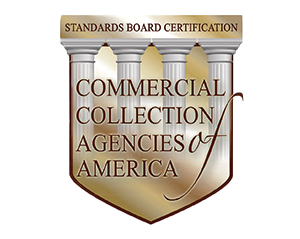Home / News & Insights / May 7, 2019 / ...
The Importance of Mandating Credit Applications from New Customers
Most fail to realize that credit extensions to customers are essentially loans. If you were going into a bank for a loan, you would expect to fill out an application. So, it makes sense that when a prospect asks for credit terms, you would have them fill out an application.
Fear of losing a sale often stops most from mandating credit applications that are filled out and signed. But the reality is that asking for and obtaining such an application will go a long way to adding credibility to your organization whilst also securing your product/service if an invoice goes unpaid.
Any financially sound buyer with good credit credentials should have no objection to completing an application. If anyone does object, it should alert you that something may be wrong – either the prospective customer is already trading beyond their financial limits or has something else to hide. If a potential customer refuses to buy from you because you insist on a credit application, the sale was probably headed for disaster anyway. So, even in this case, requiring a credit application helped you to make a sound credit decision by weeding out a potential bad debt situation.
A well-constructed mandated credit application should be one of the cornerstones of any credit extension policy. Properly constructed and executed, it can:
- aid in the decision to extend credit to potential customers
- serve as a point of reference for gathering information in the event of non-payment
- function as an enforceable document if litigation becomes necessary
What to include in a credit application:
- All legal data on the customer, including their exact legal composition (i.e. corporation, partnership, LLC, etc.), the names of all principals or corporate officers, and place of incorporation, address, direct dial phone numbers, fax numbers, along with their email addresses.
- Bank account information – in the event you have a judgment and need to attach company assets.
- Trade references, preferably in your own industry.
- Personal Guarantee. The Personal Guarantee is an added protection for you. Understand, however, that it is only as good as the financial worthiness of the guarantor. Personal Guarantees within the credit application have been a constant discussion in recent years. While we recommend including it for credibility, and leverage if needed, not all states allow them, and enforcing them is not always easy.
- Arbitration. Both parties agree to arbitration of any payment disputes. By doing so, the more expensive approach of litigation is avoided. Include in the clause the exact arbitration steps to be followed, so there are no delays associated with later negotiation of these steps.
- Binding and Electronic Signature. A clause could state that the person signing the application does have the authority to agree to the terms and conditions stated in the application. And all electronic versions are valid.
- Electronic payment. All payments will automatically be debited from its bank account with an ACH debit transaction for invoiced sales. (Each organization will determine the parameters of when each payment is withdrawn.)
- Collection Fee and Attorney Fee reimbursement. If the company needs to pay a third party, such as a collection agency or attorney, to collect from the applicant, the applicant agrees to pay these fees. It is not likely that the fees will actually be collected, but it may be worthwhile to insert the clause just to provide the company with extra collection leverage.
- Legal venue. The parties agree that, if a legal outcome is necessary, the litigation will be addressed in the state of residence of the company, not the applicant. This reduces the cost of travel for the company.
- Returned check fees.
To find out more about mandating credit applications, get in touch with us.






